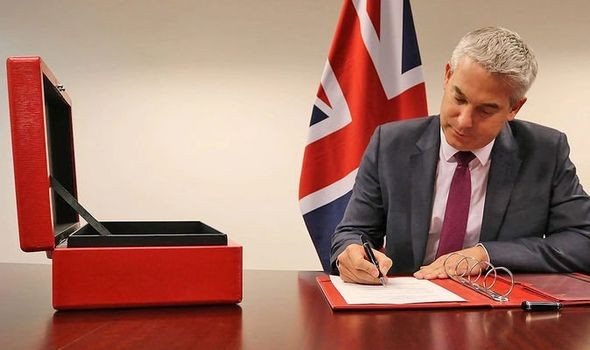Bruges Group Blog
Our Fight with Brussels Does NOT End on 31st October
Our fight with Brussels does not end on the 31st of October. This wider conflict that Brexit represents is between sovereign nations and supranational organisations, between self-determination and central planning of the most wicked intention. In order to capitalise on our departure, we must first recognise a weakening, Brussels is tightening its grip on Europe. It is desperation which makes it ever more dangerous, secondly, we must address how we combat this agenda and provide better alternatives in a post Brexit world.
The EU is founded on flawed principles, but since the Brexit referendum it has grown weaker and more desperate. GDP growth for Germany was 0.6% this year, and Deutsche Bank's shares are lower than they were during the 2008 financial crisis, they even had to make thousands of staff members redundant. The Euro Zone has an average 7.5% rate of unemployment, compared to the UK's 3.7%. This economic fragility is precisely why the EU has been so aggressive during Brexit negotiations and more importantly, is why they are tightening their grip on Europe.
We see this mainly in their support as early as 2015 for the 'Five Presidents Plan', that aims to work towards a Federal Europe. The recent appointment of Ursula von der Leyen, a failed German Defence Minister, and her determination to create a European Army proves a Federal Europe is still the ultimate goal. Their weakness has made them determined to prevent any other European nations take back control. They are succeeding, our inability to leave on the 29th of March 2019 and the following setbacks have crippled Eurosceptics across the continent. In France, Marine Le Pen's National Front party backtracks on a referendum of EU membership, yet still won a majority in the European elections. In Italy, the populist coalition says there will be no question of their membership, only pitiful reforms. In central Europe, hard-line Eurosceptic nations stay silent. The message is clear; Eurosceptics are afraid of the chaos that may follow a decision to leave the EU and that's exactly what the Commission and federalists want. Brussels will only see this as a win, and an excuse to purse closer integration of the European countries against their will, depriving them of sovereignty. This desperation to succeed, and the opportunity provided through our own failure to manage Brexit will have adverse effects. It will make their consolidation of power more aggressive, binding each country to one another and stripping nation states of their independence, giving greater legislative and fiscal powers to the European Union. We see this in proposals for greater tax powers and more plans on how countries should be spending their own money, but also their expansion into the Balkans, pushing for evermore members whilst lowering the requirements to enter. After all, when a nation loses control of not only its sovereign currency but then its authority over its economy then surely it becomes a sovereign nation in name only.
This combination of economic fragility and opportunity in the eyes of Brussels will only make the conflict between sovereign nations and supranational organisations tenser. And it is this threat from an ideology that strips individuals of their freedom and democratic values in order to support a bureaucratic and undemocratic machine in Brussels. Much like the Soviet Union, from ''Stettin in the Baltic to Trieste in the Adriatic, an iron curtain has descended across the continent."
In order to combat this, and we must combat this, we will need to present ourselves as the shining example of what can be achieved outside the bloc, through trade deals with the USA, China, India and other economic powerhouses. But we must also look directly to those countries within the EU, we must cooperate, negotiate and celebrate together, as sovereign nations in order to undermine the influence of Brussels over those countries dependent on it. It would be a stretch to suggest a cold war is brewing, but the 31st of October marks not the end of an era but the beginning of conflict between two very different viewpoints. The greatest philosophical conflict since the fall of the Berlin wall and the Soviet Union. We cannot let the European Union destroy European identity and culture by blending all into one federal state, Mrs Thatcher said in her 1988 Bruges Speech to the College of Europe "Europe will be stronger precisely because it has France as France, Spain as Spain and Britain as Britain each with its own customs and traditions. It would be folly to fit them into some sort of European identity."
The message from Brussels is clear, the course of action is too.
Contact us
246 Linen Hall, 162-168 Regent Street
London W1B 5TB
Director : Robert Oulds MA, FRSA
Founder Chairman : Lord Harris of High Cross





